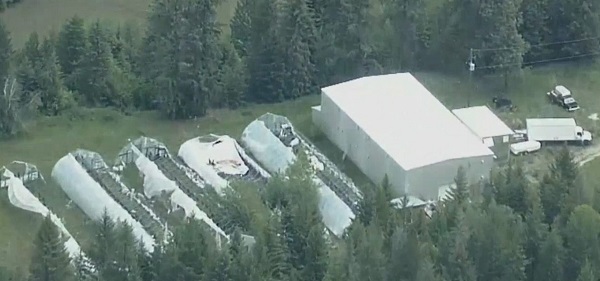Jail for saying something positive about oil and gas?
Yes, really.
Fines or prison time are in a private member’s bill before the House of Commons, Bill C-372 from NDP MP Charlie Angus, an Act Respecting Fossil Fuel Advertising.
Only it wouldn’t just ban “advertising” but would also punish anyone caught saying anything positive about fossil fuels in Canada.
Corporate producers could be jailed for two years or be hit with a $1-million fine. The penalties for smaller agencies and individuals could mean $500,000 fines and imprisonment for two years less a day.
There are several prohibitions. Section 6 would prohibit promoting a fossil fuel, and Section 8 would, for one, prohibit promoting LNG as having less impact than other fossil fuels, and prohibit spreading the word on a positive impact, such as reducing net emissions or contributing to Indigenous economic reconciliation.
The legislation would prohibit companies and people from making comparisons between different types of fossil fuels — even if the comparisons were factually and scientifically accurate. To say that one fuel that has a lower emissions profile than another would be illegal if the bill passes.
Angus as an MP has generally supported First Nations needs and priorities, but his bill was quickly slammed by some First Nations leaders. No surprise, as Canada’s oil and gas sector employs 10,400 Indigenous people, better than 6% of the total workforce. And nearly 50 Indigenous communities are becoming owners of major oil and gas and energy projects.
Angus’s First Nations critics have included these:
- Stephen Buffalo, CEO of the Indian Resource Council: “One of the most contemptible pieces of legislation since the introduction of the Indian Act in 1876. “Angus’ proposed fossil fuel advertising act would outlaw oil and gas advertising and the ‘promotion’ of fossil fuels, even by some private citizens. If passed, this would be the most egregious attack on civil liberties in recent Canadian history.
“Angus and his environmental supporters . . . have shown themselves to be no fans of Indigenous peoples. These single-minded environmentalist organizations ignore the interests of First Nations, Métis and Inuit communities, except when they want to impose their will on them.”
- Karen Ogen, CEO of the First Nations LNG Alliance: “The NDP MP for Timmins-James Bay and his party want to shut down fossil fuel production, a move that would devastate the Canadian economy and undermine the greatest — and often the only — opportunity that many First Nations have for economic renewal.
“Even that is not enough. He wants to shut us up, telling us what to think and threatening us with jail and fines for not adhering to his strange, unrealistic and dangerous views of energy and environmental protection.”
And columnist Brian Lilley in The Toronto Sun called Angus’s bill “a joke” and “one of the craziest private member’s bills that I’ve ever read.”
Some commentators have seen the the bill as criminalizing dissent, rather than trying to get people on board with Angus’s cause in a constructive and meaningfully engaged way as you have to do in a democracy.
It all comes amid debate over environmental policy in Canada, and, following court rulings on some federal moves, over jurisdictional overreach.
Over the last two decades, environmental policy has been a more prominent part of federal politics. The federal government, particularly through Steven Guilbeault, minister of environment and climate change, has increased its presence and powers in matters environmental.
But there have been cases where the feds have tiptoed over the jurisdictional line, as the provinces have rights under the constitution to manage their own natural resources.
Angus’s misguided bill could also establish a dangerous precedent. How could Canadians talk democratically about any issue, adopt positions on it, and democratically resolve it, if the law banned them from advocating their positions?
Angus’s bill needs also to be treated with plain common sense: 80% of all of the energy we use in the world right now comes from fossil fuels. They are thus literally the foundation for the modern life and civilization that we have globally right now.
It’s a little bit bizarre, too, for MP Angus and his fans to say he’s merely doing for oil and gas what Canada has long done to restrict tobacco advertising.
Tobacco was a big industry in Canada, and continues to be one globally. Yes, tobacco has some serious health effects. But tobacco doesn’t keep the world’s economy running.
As we talk about solutions to climate change, as we try to deal with over 100 years of putting fossil fuels into the mix to power our daily life, it’s undeniable that we have emitted (and still emit) a lot of greenhouse gases into the atmosphere.
But criminalizing merely talking about one of the key components of our energy system is a really bizarre approach to problem solving.
It also seems a weird move from a party, the NDP, that is committed to democracy and democratic rights. There was significant silence on the bill from NDP leader Jagmeet Singh, although when two NDP MLAs in Alberta questioned the bill, he said, “We’re a large party and that’s a normal thing that happens.”
The office of Environment Minister Guilbeault: “We welcome the NDP’s bill to the House. Advertisement has a big role to play in public perception, and the industry is raking in record profits. We will carefully assess their bill and look forward to productive debates and discussions around this important issue.”
Fortunately, the chances of the law passing are slim to none, even if it goes to second reading.
In the end, Charlie Angus’s bill will die a quiet death in Parliament. And so it should.
Margareta Dovgal is Managing Director of Resource Works. Based in Vancouver, she holds a Master of Public Administration in Energy, Technology and Climate Policy from University College London. Beyond her regular advocacy on natural resources, environment, and economic policy, Margareta also leads our annual Indigenous Partnerships Success Showcase. She can be found on Twitter and LinkedIn.











